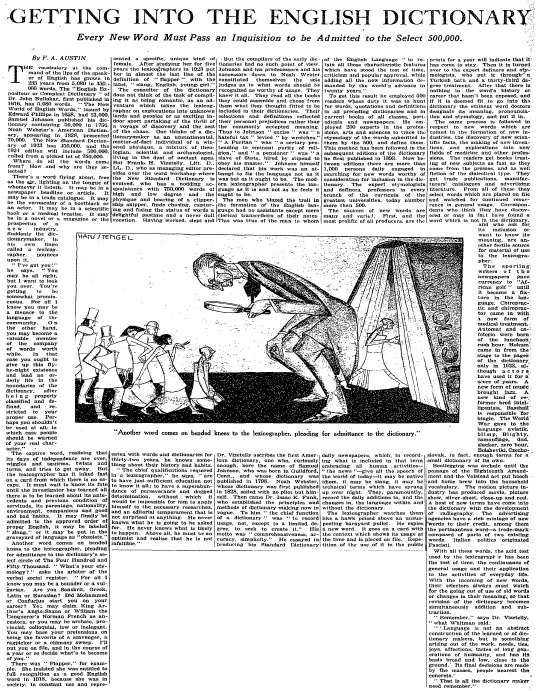Getting Into the English Dictionary
In the 1910s and early 1920s, many new words and phrases officially entered the dictionary. Some we still use today: jazz, cafeteria, chiropractor, fascist. Some, like "African golf" and "bingle," not so much.
A 1923 New York Times Magazine article explained:
The sporting writers of the newspapers gave currency to "African golf" until it became a fixture in the language. Chiropractic and chiropractor came in with a new form of medical treatment. Automat and cafeteria were born of the luncheon rush hour. Hokum came in from the stage to the pages of the dictionary only in 1923, although actors have used it for a score of years. A new kind of reformer bred intelligentsia. Baseball is responsible for bingle. The World War gave to the language aviatik, blimp, Blighty, camouflage, dud, slacker, zero hour, Bolshevik, Czechosolovak — in fact, enough terms for a small dictionary of its own.
There was more:
Bootlegging was archaic until the passage of the Eighteenth Amendment and the Volstead Act put hooch and home brew into the household vocabulary. The motion picture industry has produced movie, picture show, silver-sheet, close-up, and reel. A host of new terms have come into the dictionary with the development of radiography. The advertising agencies have a rich mintage of new words to their credit, among them the portmanteau word — a trademark composed of parts of two existing words. Italian politics originated Fascist.
What are the definitions for some of those words and phrases which are likely unfamiliar to modern eyes?
African golf: slang term for the dice gambling game craps. First use: 1915.
Bingle: baseball slang term for a base hit single. First use: 1900-1905.
Blighty: one's native land, especially England. First use: circa 1901.
Silver-sheet: apparently this meant the same thing as "silver screen," as in the surface onto which movies were projected. The term was also used to refer to the film industry in general.
Getting Into the English Dictionary
Published: Sunday, July 3, 1923


